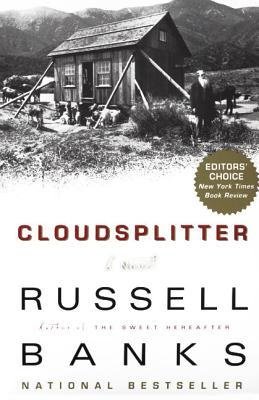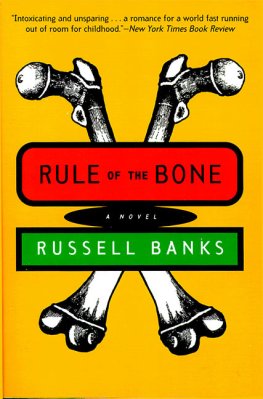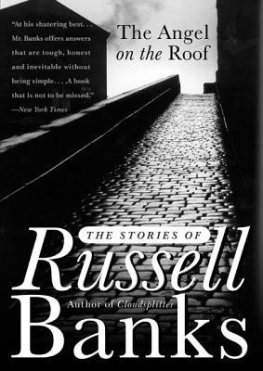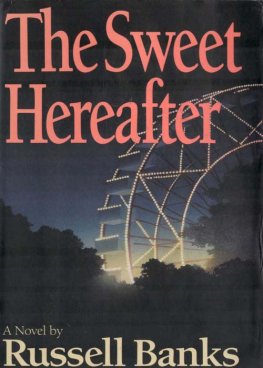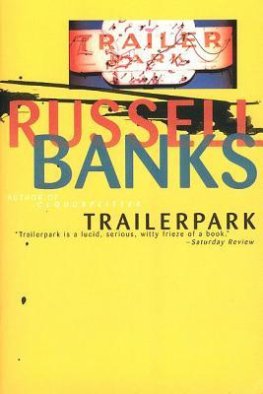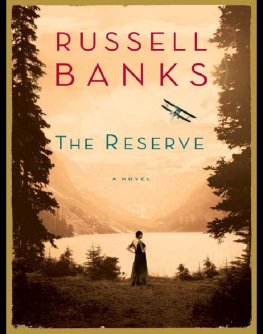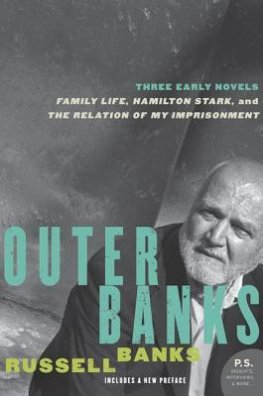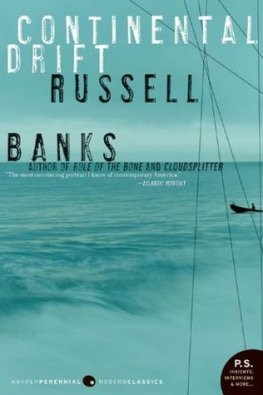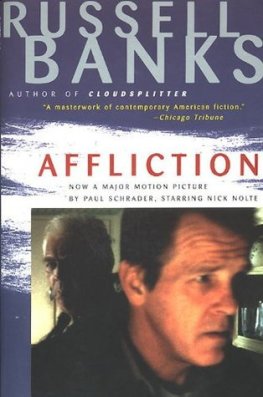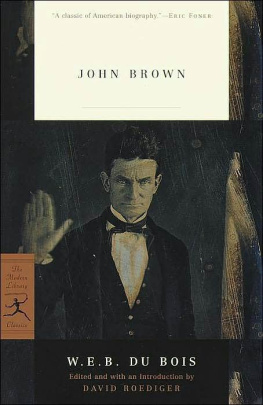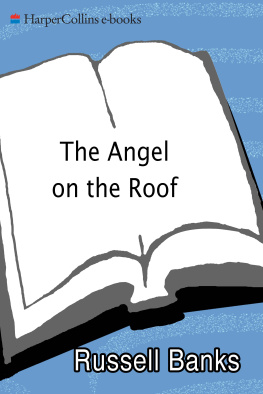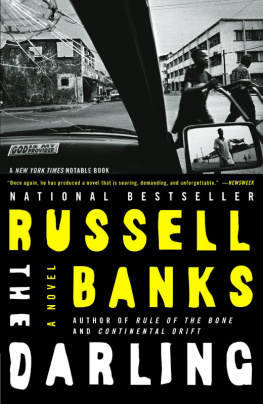Russell Banks
Cloudsplitter
for C.T., the beloved,
and in memory of William Matthews (19421997)
and I only am escaped alone to tell thee.
JOB 1:16
Upon waking this cold, gray morning from a troubled sleep, I realized for the hundredth time, but this time with deep conviction, that my words and behavior towards you were disrespectful, and rude and selfish as well. Prompting me now, however belatedly, to apologize and beg your forgiveness.
You were merely doing your duty, as assistant to your Professor Villard, who in turn is engaged in a mighty and important task, which is intended, when it has been completed, not only to benefit all mankind but also to cast a favorable light upon the family of John Brown. And since I myself am both both a man and a member of the family of John Brown then I myself stand to benefit twice over from your and Professor Villards honest labors.
Self-defeating, then, as well as cruel and foolish of me, to thwart you. Especially when you are so clearly an open-minded, sincere, and intelligent seeker of the truth, the whole truth so help me, Miss Mayo, I am sorry.
I ask you to understand, however: I have remained silent for so many years on all matters touching on Father and our family that by the time you arrived at my cabin door I had long since ceased even to question my silence. I greeted your polite arrival and inquiries with a policy made nearly half a century ago, a policy neither questioned nor revised in all the years between. Policy had frozen into habit, and habit character.
Also, in the years since the events you are investigating, my life has been that of an isolate, a shepherd on a mountaintop, situated as far from so-called civilization as possible, and it has made me unnaturally brusque and awkward. Nor am I used, especially, to speaking with a young woman.
I remind you of all this, of my character, I guess you could call it, so that you can place my remarks, memories, and revelations even the documents that you requested and which I will soon sort out and provide for you into their proper context. Without continuous consideration of context, no truth told of my fathers life and work can be the whole truth. If I have learned nothing else in the forty years since his execution, I have learned at least that. It is one of the main reasons for my having kept so long so silent. I have sat out here tending my sheep on my mountaintop, and the books and newspaper articles and the many thick volumes of memoirs have come floating down upon my head like autumn leaves year after year, and I have read them all, the scurrilous attacks on Father and me and my brothers in blood and in arms, as well as the foolish, dreamy, sentimental celebrations of our heroism and manly courage in defense of the Negro oh, I have read them all! Those who made Father out to be mad, I have read them. Those who called him a common horse thief and murderer hiding beneath the blanket of abolitionism, I read them, too. Those who met Father and me and my brothers but once, on a cloudy, cold December afternoon in Kansas, and later wrote of us as if they had ridden with us for months all across the territory yes, those, too. And those who, on hearing of Fathers execution, wept with righteousness in their pious Concord parlors, comparing him to the very Christ on His very cross I read them, too, although it was hard not to smile at the thought of how Father himself would have viewed the comparison. Father believed in the incomparable reality of Christ, after all, not the incorporeal idea. Fathers cross was a neatly carpentered scaffold in Virginia, not a spiked pair of rough timbers in Jerusalem.
Forgive me, I am wandering. I want to tell you everything now that I have decided to tell a little. Its as if I have opened a floodgate, and a vast inland sea of words held back for half a lifetime has commenced to pour through. I knew it would be like this. And thats yet another reason for my prolonged silence made worse, made more emphatic and burdensome and, let me say, made confusing, by the irony that the longer I remained silent, the more I had to tell. My truth has been held in silence for so long that it has given the field over entirely to those who have lied and risks having become a lie itself, or at least it risks being heard as such. Perhaps even by you. Thus, although I have begun at last to speak, and to speak the truth, it feels oddly and at the edges as if I am lying.
I say again that I am sorry that I rebuffed you the other day. You are young and may not know, but solitude, extended for a sufficiently long time, becomes its own reward and nourishment. And an old mans voice aloud can become repugnant to his own ears, which is perhaps why I have chosen to write to you, and to write at as great a length as will prove necessary, instead of merely speaking with you and politely answering your questions in person as you wished. The anxious bleat of my sheep, the bark of my dog, and the gurgle and crack of my fire these, for decades, are practically the only voices that I have heard and spoken back to, until they have become my own voice. It is not a voice suitable for a lengthy interview with a young, educated woman like yourself come all the way out here from the city of New York to my hill in Altadena, California.
What sense could you have made, anyhow, of an old, bearded man bleating, barking, and cracking all day and night long? I picture you had I actually granted the interview that you so kindly requested becoming embarrassed, confused, finally angry and resigned; and you, closing your notebook and taking polite leave of me, reporting back to your eminent Professor Oswald Garrison Villard at Columbia University that you arrived too late. Poor old Owen Brown, third son of John Brown, the last living witness and party to the Pottawatomie massacre and the victories and tragedies of Bleeding Kansas and the long, terrible series of battles in the War Against Slavery that culminated in the disastrous raid on Harpers Ferry that pathetic, aged, solitary man, Owen Brown, is now quite mad himself, and so we shall never know the truth of whether his father, too, was mad. We shall never know if John Brown was in his right mind when he butchered those men and boys down on the Pottawatomie that awful night in 57. Or whether, when he terrorized the pro-slavers in Kansas, he was in fact the old-time, Puritan hero and military genius that so many made him out to be. Or if, when he took Harpers Ferry and refused to flee into the mountains, he had by then lost his mind altogether. The son himself, the hermit-shepherd Owen Brown, is mad, you would say to your professor (and perhaps are saying to him even now), and we shall never know conclusively if the father was mad also. Thus, given what we already know of John Brown, you will say, and in the absence of significant evidence to the contrary, we must concur with our centurys received opinion and, before the next century begins, adjudge him a madman.
I hope, therefore, that your quick receipt of this first of what shall be several, perhaps many, such letters will slow that judgement and eventually reverse it.
Was my father mad? I realize it is the only question that can matter to you. Since they first heard his name, men and women have been asking it. They asked it continuously during his lifetime, even before he became famous. Strangers, loyal followers, enemies, friends, and family alike. It was then and is now no merely academic question. And how you and the professor answer it will determine to a considerable degree how you and whoever reads your book will come to view the long, savage war between the white race and the black race on this continent. If the book that your good professor is presently composing, though it contain all the known and previously unrecorded facts of my fathers life, cannot show and declare once and for all that Old Brown either was or was not mad, then it will be a useless addition to the head-high pile of useless books already written about him. More than the

